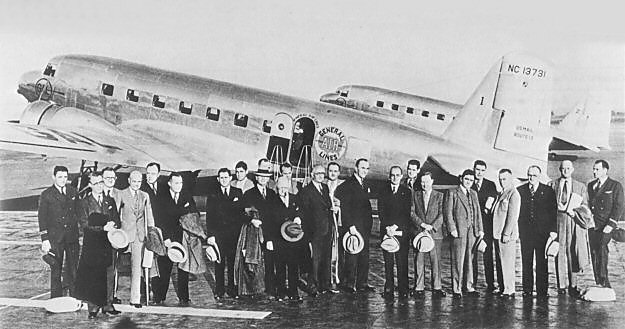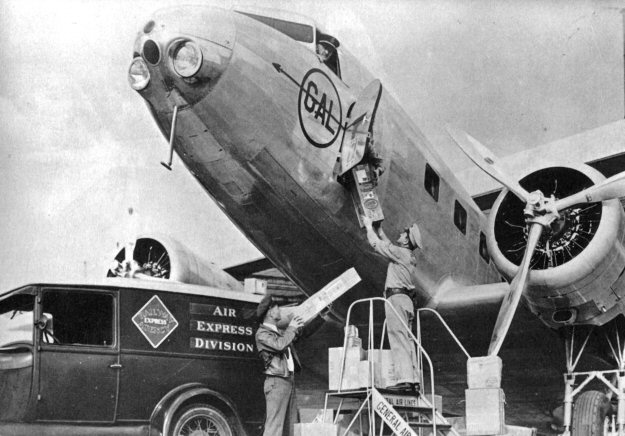General Air Lines
Douglas DC-3
NC13731
(c/n 1257)

When the U.S. Government
cancelled the air mail contracts in February 1934 due to the corruption
which had occurred under Walter Folger Brown's leadership of the Post
Office Department, the U.S.
Army began
the chore of carrying the mails. Following a disastrous couple of
months during which at
least four
crashes to military mail planes occurred, President Roosevelt admitted
that this was a bad plan
and invited new
bids for air mail contracts. However, there were two main
provisos for holding a new
contract: One was that
manufacturing concerns had to divest themselves of their airline
operating
divisions, and the other was that the former companies which had
enjoyed the favor's of Brown's
"spoils" could not bid.
This led, of course, to a general restructuring of airline corporate
papers,
wherein
American Airways became American Airlines, Eastern Air Transport became
Eastern Air
Lines,
etc. Western Air Express, fearing that even the names of its
Board of Directors and even the
connotation of the word "Western" would anger the government,
chose to float a new airline under
the name of its holding company
(General Motors) and bid its contracts under the name of General
Air Lines. Four DC-2s were
acquired, two of which are seen above. (Since this was a thinly
veiled
disguise of Western Air Express, I
am positioning this airline here rather than in its correct alphabetical
place). North American Aviation managed to retain an element of
joint operating and manufacturing in
that it held General Aviation (which had purchased Fokker) and Eastern
Air Transport. When financier
William A.
Coulter tried to purchase General Motors's shares in both Western Air
Express and Eastern,
General Aviation forced a liquidation dividend as a condition of sale
and General Lines was dissolved.
The DC-2s were absorbed into the Eastern Air Lines
fleet and WAE , reduced now to virtually nothing,
became an
autonomous company again. Since images of General
DC-2s are extremely rare, I am
appending
one below (via Douglas Aircraft Corp) even though the identity of the
individual aircraft cannot
be
ascertained. Incidentally, NC13731 above, went to the Royal Australian
Air Force in WW II becoming
A30-12 with call sign VH-CRF.


